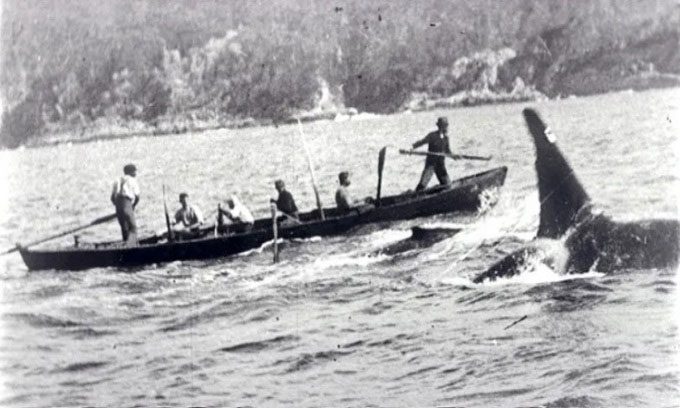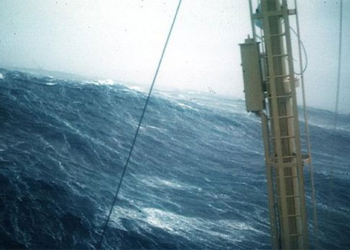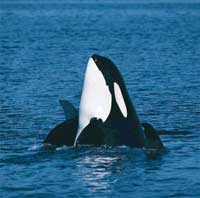Researchers are exploring the cooperative relationship between the mysterious orcas and the indigenous Australian Aboriginal people that seems to have gone extinct over the millennium.
The study is based on genetic analysis. The Thaua people of the Yuin nation, living in coastal areas, traditionally sang to the orcas while hunting for baleen whales across many generations in the Turembulerrer Bay (Twofold) off the eastern coast of Australia. The orcas would only take the lips and tongues of the whales in a mutually beneficial exchange known as the “Law of the Tongue,” according to research published in the journal Heredity, as reported by Business Insider on October 22.

Orcas hunting alongside humans in the early 20th century. (Photo: Charles E. Wellings)
In the 19th century, European colonists exploited this relationship to develop commercial whaling activities in the bay. Records indicate that orcas would slap the water in front of the whaling stations to signal fishermen, including the Thaua people, about the presence of whales. They would lead fishermen to where the whales were, sometimes pulling them with ropes, and influence the whales to slow down, ensuring a successful hunt.
By the 1930s, after hunting alongside humans for 1,000 years, the orca population disappeared. To learn more about them, researchers analyzed the DNA of a 7-meter-long orca from a pod known as “Old Tom.” Its DNA was sufficiently distinct from that of any living orcas, proving that its pod is now extinct.
Steven Holmes, a co-author of the study, stated that the Thaua people regarded orcas as their brothers. Old Tom’s remains washed ashore in 1930, and its skeleton is preserved at the Eden Killer Whale Museum. Isabella Reeves, a PhD candidate at Flinders University in Australia and the lead researcher, visited the museum to drill samples from Old Tom’s teeth and jaw for DNA analysis. Initially, the research team identified it as male. The animal’s active role in hunting whales is quite unusual, as male orcas typically let their mothers hunt. Old Tom likely shares a common ancestor with New Zealand orcas. However, many genetic traits in Old Tom’s DNA are not found in any living orca populations, indicating that they have been lost due to extinction.
The research team does not yet know exactly when and how the cooperation between humans and orcas began. The Thaua and many other Indigenous peoples hunted orcas long before Europeans used them for commercial hunting in the 19th century.





















































